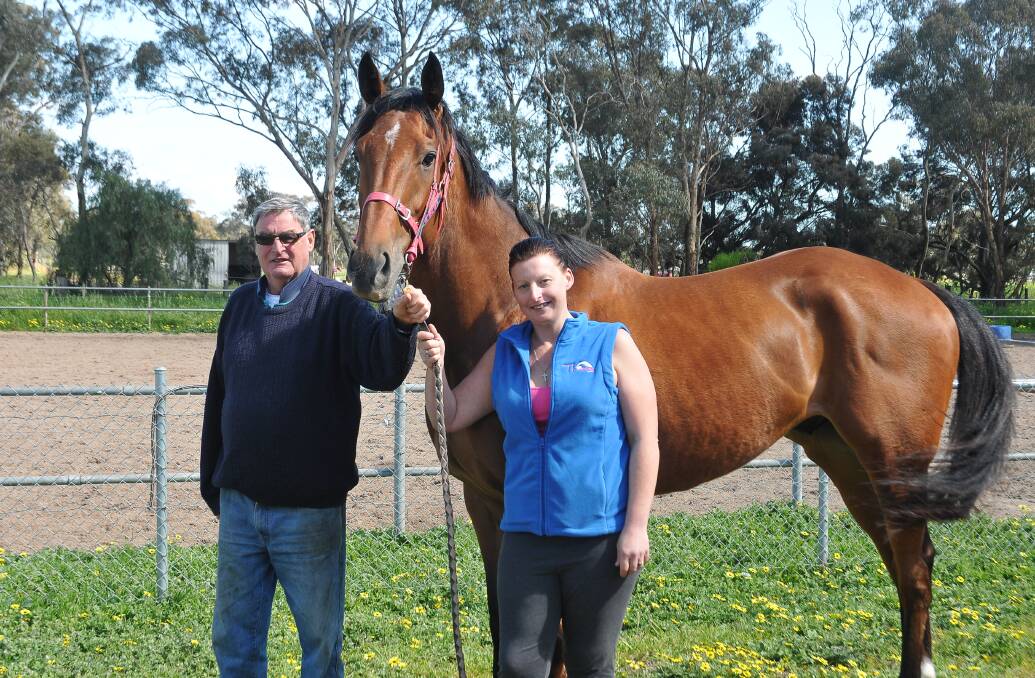
Racing Victoria claimed Stawell trainers Terry and Karina O'Sullivan displayed "serial dishonesty" and "wilful blindness" about their involvement in three cobalt breaches that saw the pair disqualified from the industry for three and five years respectively.
Subscribe now for unlimited access.
or signup to continue reading
On Wednesday, VCAT senior member Anna Dea handed down mandatory minimum three-years bans for each of three breaches to the father-daughter training partnership.
Ms Dea found "on the balance of probabilities and to a comfortable level of satisfaction that the trainers injected the horses with the relevant substance on all three occasions."
Elevated readings were recorded in two different horses on three separate race days.
Darragh twice returned elevated readings at meets in Ballarat in 2015 and 2016, while stablemate Gold A Plenty recorded an elevated reading at Sandown in 2016.
The B samples of the breaches returned readings between 960 and 1300 micrograms per litre of urine. At the time the legal limit was 200 micrograms per litre. The A-samples all returned readings three times the legal limit.
"At the time of the first three administrations, it was possible the trainers were ignorant that the substance they administered, or cause to be administered, contained cobalt. I found that still amounted to a breach of the rule," Ms Dea said.
"By the time of the second and third administrations, the trainers must've been aware that they had used a substance or substances that contained large quantities of cobalt.
"On the undisputed expert's opinion, the only explanation for the trainers' conduct was that it was an attempt at blood doping with the intention of achieving an unfair advantage."
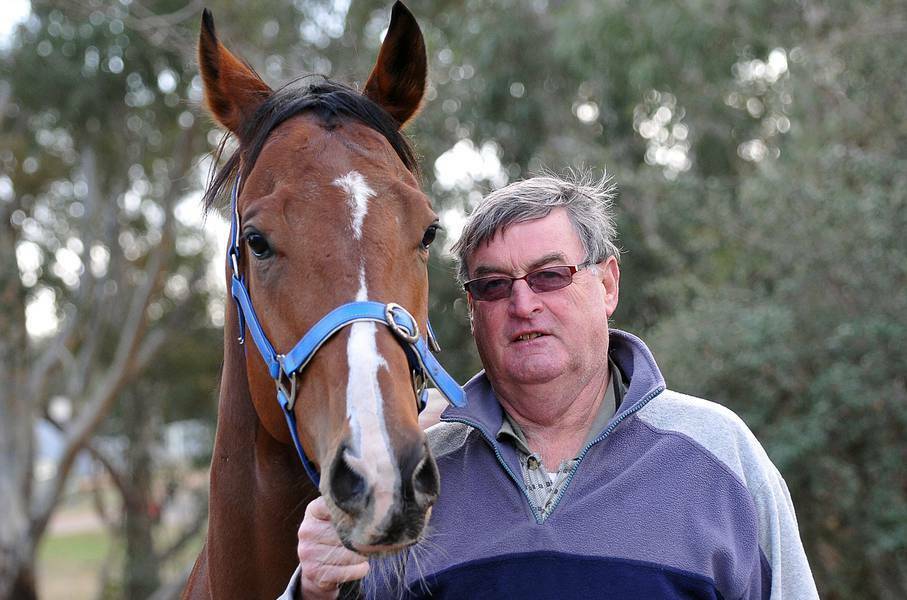
The O'Sullivans were supported by character references from prominent figures in the racing industry and Stawell community, which Racing Victoria did not take issue with.
Terry O'Sullivan relied on a letter from his wife, noting her and her husband's commitment to the industry and shared how they would employ apprentice jockeys and welcome them into their family and sometimes their home.
Mrs O'Sullivan ended her letter by saying: "After fifty years of absolute dedication to the racing industry, Terry O'Sullivan and his family now need to face the fact that their dedication to the industry and their fostering of young apprentices, is no longer respected. This is an industry that needs its young people to be cared for in a loving, family environment. The experience of older, honest and caring participants should also be welcome."
Stawell-based jockey and trainer Linda Meech - who apprenticed for and lived with Mr and Mrs O'Sullivan for two years - wrote a reference acknowledging "Terry stressed on me the virtues of hard work and discipline and of riding competitively but fair."
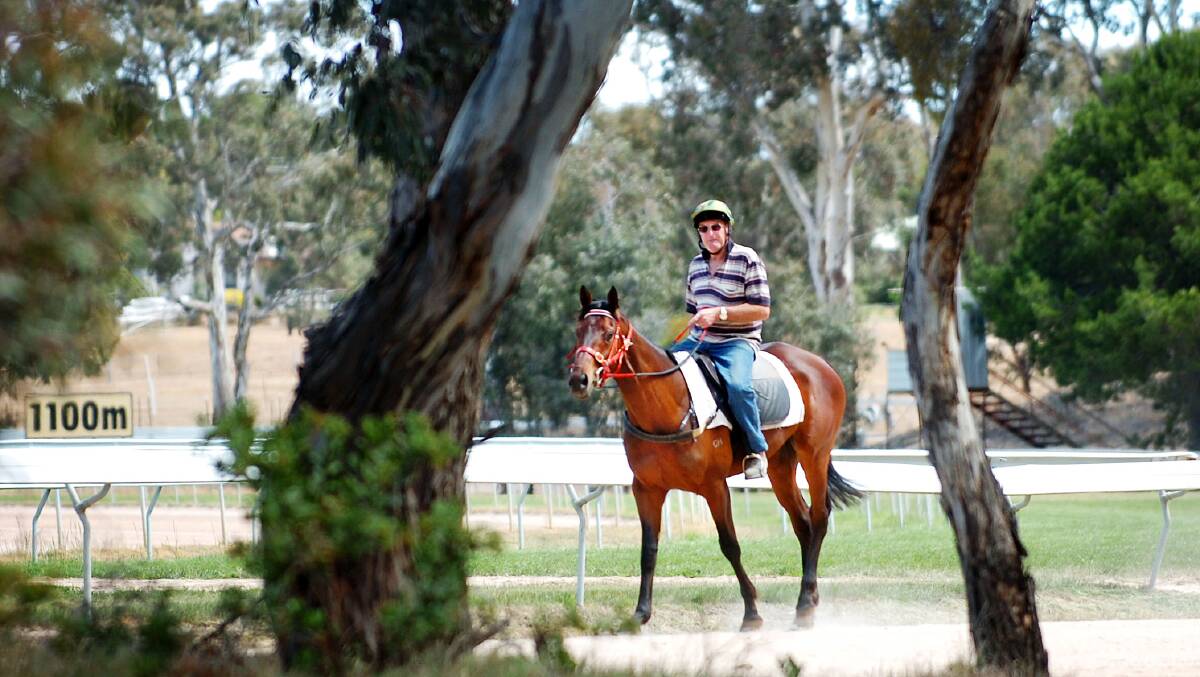
Mr O'Sullivan relied on a character reference and evidence given by Tony McInerney, who he has known since around 1995. McInerney has held interests - including majority ownerships - in 18 horses trained by Terry O'Sullivan.
"His (Mr McInerney) observation was that, for his 50 or more years in the industry, Mr O'Sullivan was one of the best known, respected and loved participants. That was said to come from all sections of the industry - from owners (not just those whose horses he trained), fellow trainers and jockeys (from the most experienced to young apprentices)," Ms Dea concluded.
"Mr McInerney stated that Mr O'Sullivan was greatly respected in the Stawell and wider Wimmera community.
"He said that, while he understood and respected the findings, he found the concept that Mr O'Sullivan would have made a decision to give a horse a substance he knew to be prohibited 'incongruous'. Mr McInerney added it was 'impossible' to him that Mr O'Sullivan would make that decision."
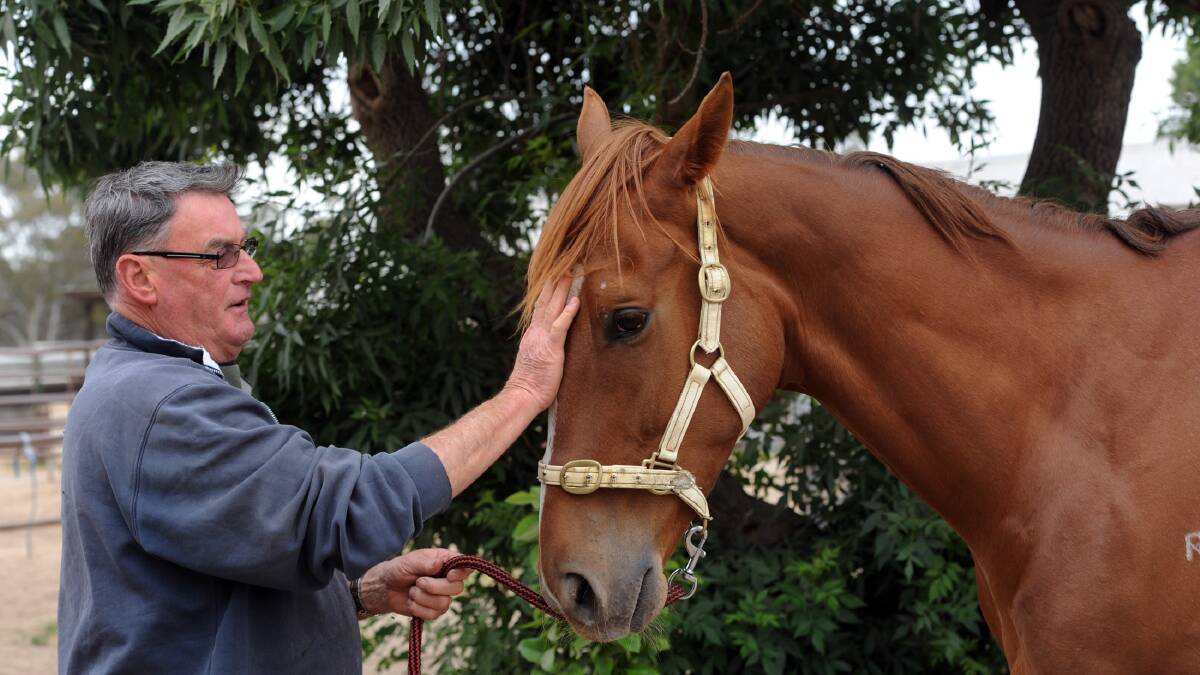
Racing Victoria accepted the proposition that Mr O'Sullivan had a good reputation in the industry, however, argued that was "significantly diminished and undermined" by VCAT's findings and Mr O'Sullivans conduct throughout the Stewards' investigation.
Ms Dea accepted that Mr O'Sullivan was "one of only a handful at best of trainers with 50 years' experience", but said his conduct was not consistent with the reputation his character references had pointed to.
"While it may be special that a trainer has a successful and noteworthy career for 50 years with few blemishes and the support of his industry, that value must be reduced once found guilty of such serious conduct engaged in on three occasions over a nine-month period," Ms Dea said.
"As to Mr O'Sullivan's good character, while I do not doubt the good reputation he enjoys in the minds of the referees, that must be balanced against my findings as to his conduct in this matter. It is not impossible for a person to simultaneously have an excellent reputation in respect of a profession or in their personal lives and yet make specific errors of judgment or engage in some inappropriate conduct."
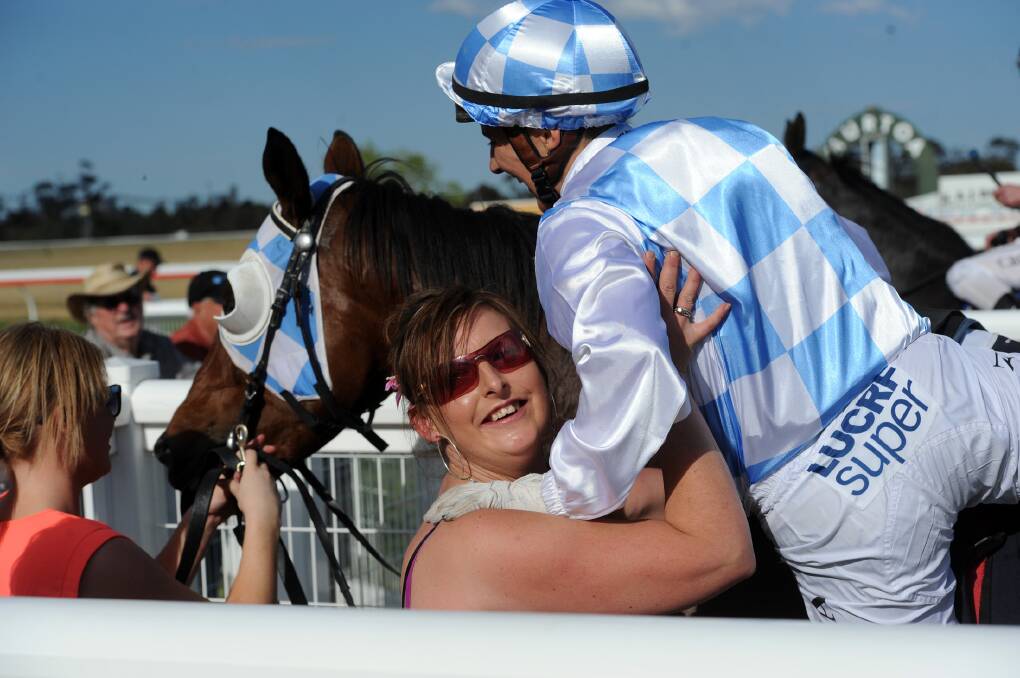
Northern Grampians mayor Murray Emerson provided a character reference for Karina O'Sullivan, saying he had seen her become "a reliable, intelligent and reasonable person."
"I would have no hesitation in recognising the outstanding qualities of all the O'Sullivan family. They are well-known contributors to the Shire and well respected," Cr Emerson's letter read.
"I am personally aware of the trauma that Karina and her family have gone through during this long process and will continue to have to deal with going forward."
Ms Dea gave weight to Cr Emerson knowing Ms O'Sullivan since she was a child.
Racing Victoria's lawyer Justin Hooper argued that while neither trainer was found to be solely culpable, both trainers were found to have breached the Australians Rules of Racing when VCAT rejected the O'Sullivans' appeal.
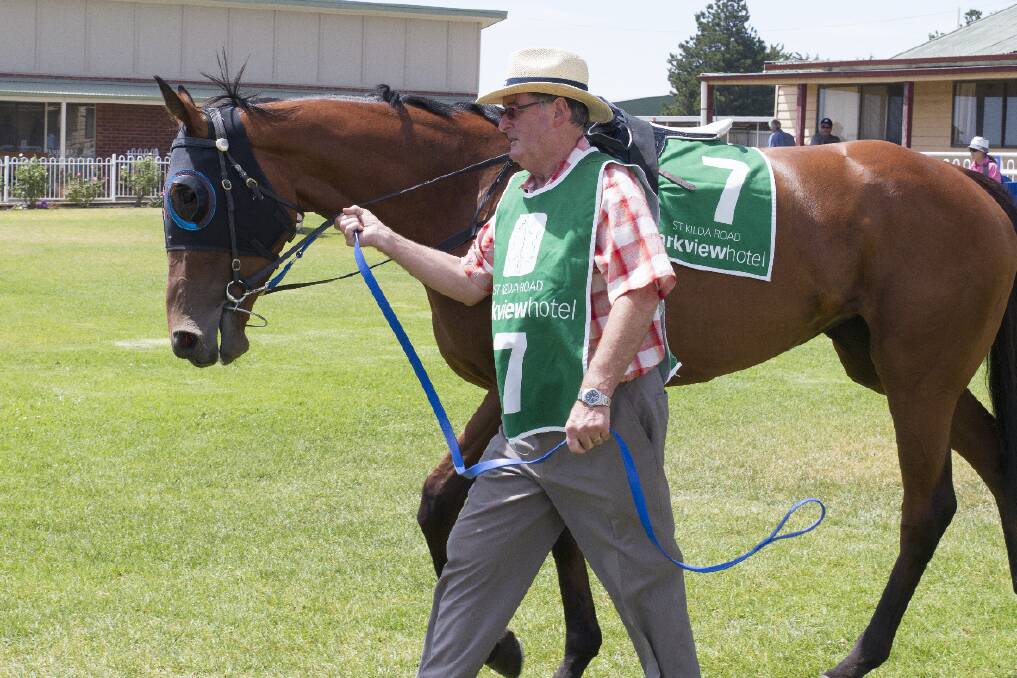
Mr Hooper noted Ms Dea "was comfortably satisfied that one of them administered injections of a substance which contained large doses of cobalt and the other knew and approved of that substance being administered or authorised the other to administer substances of whatever kind the second person."
"If they did not ask one another about what had been administered after the first above-threshold positive, it constituted 'wilful blindness'; and they otherwise both acted with full knowledge they were using a prohibited substance," Mr Hooper summarised.
Ms Dea found it to be an accurate summary and agreed there was no distinction between each of the trainers' culpability.
Mr Hooper argued a range of matters emphasised the seriousness of the breaches and the conduct underlying each offence.
Mr Hooper contended the wrongdoing "involved discrete decisions to inject horses on (or very close to) race day despite being on notice from Stewards for using prohibited substances" and "occurred in circumstances where the trainers displayed a cavalier attitude" to using a range of substances and the O'Sullivans' habit of not informing themselves about what the substances might contain.
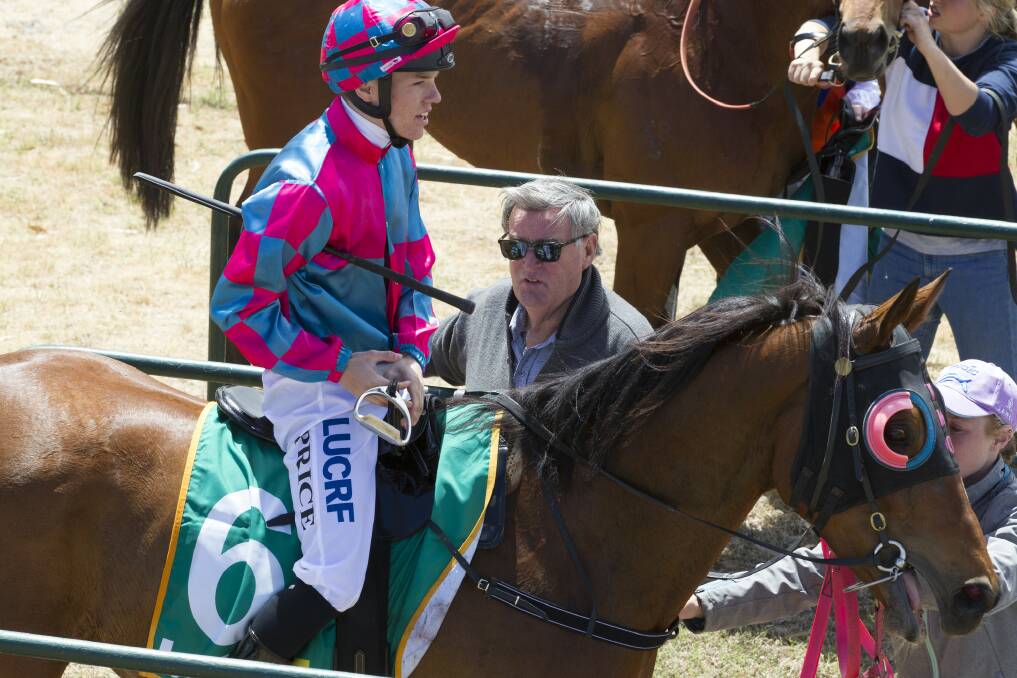
Barrister Patrick Wheelahan, defending the O'Sullivans, took issue with the argument the trainers had done nothing after the first elevated reading.
"He reminded me the trainers had engaged two ex-detectives to investigate and report to them. I note that, as recounted in the earlier reasons, the report given to the trainers was inconclusive and no other steps were taken by the trainers thereafter by way of changes to feeding practices or the day to day management of the stables," Ms Dea said.
The O'Sullivans each faced nine years out of the industry, had Ms Dea deemed not a concurrent period of disqualification appropriate.
"A total period of nine years out of the industry would remove Mr O'Sullivan from the industry permanently and likely have a similar effect on Ms O'Sullivan. Separate from their work as trainers, that penalty would be particularly destructive to their lifelong connections with racing," Ms Dea said.
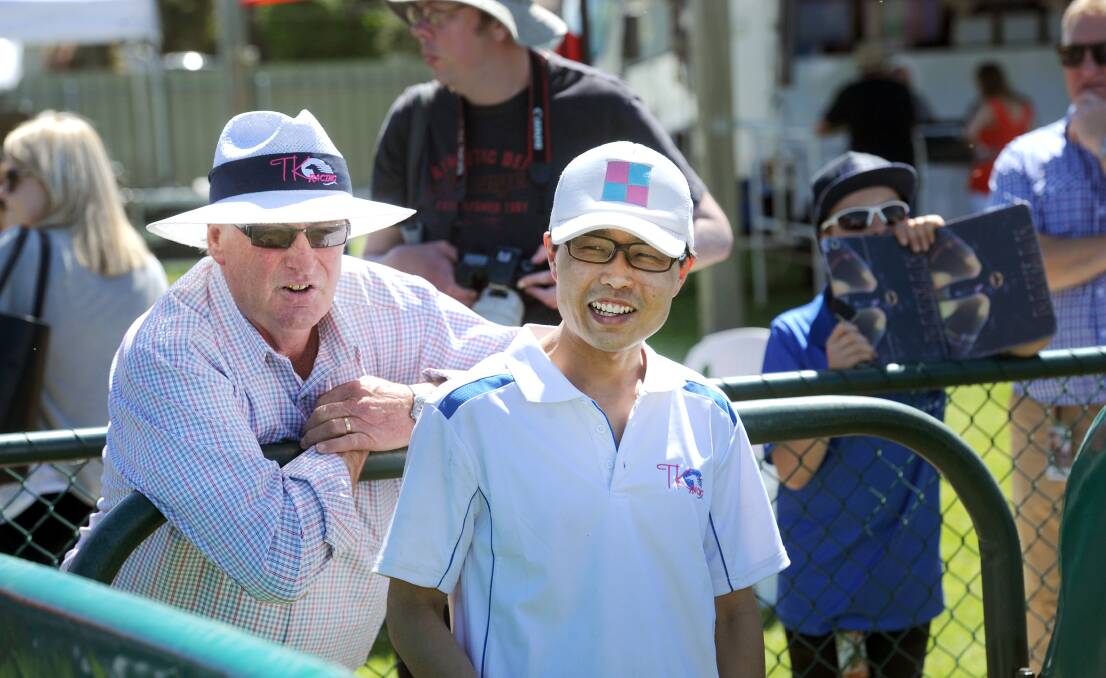
Terry O'Sullivan will serve his bans concurrently, and will not be allowed to attend racecourses or training tracks, enter training premises or place a bet on a race.
"I infer that the continuation of restrictions of that kind for more than three years would be personally devastating to him and would also significantly adversely affect Mrs O'Sullivan. A penalty carrying that outcome is not warranted given the positive evidence as to Mr O'Sullivan's involvement in the industry," Ms Dea said.
Karina O'Sullivan will serve her disqualifications partly-concurrently, and cannot reapply for a training licence until April 2023.
The disqualifications come into effect on April 16, and the trainers have the option to appeal.


